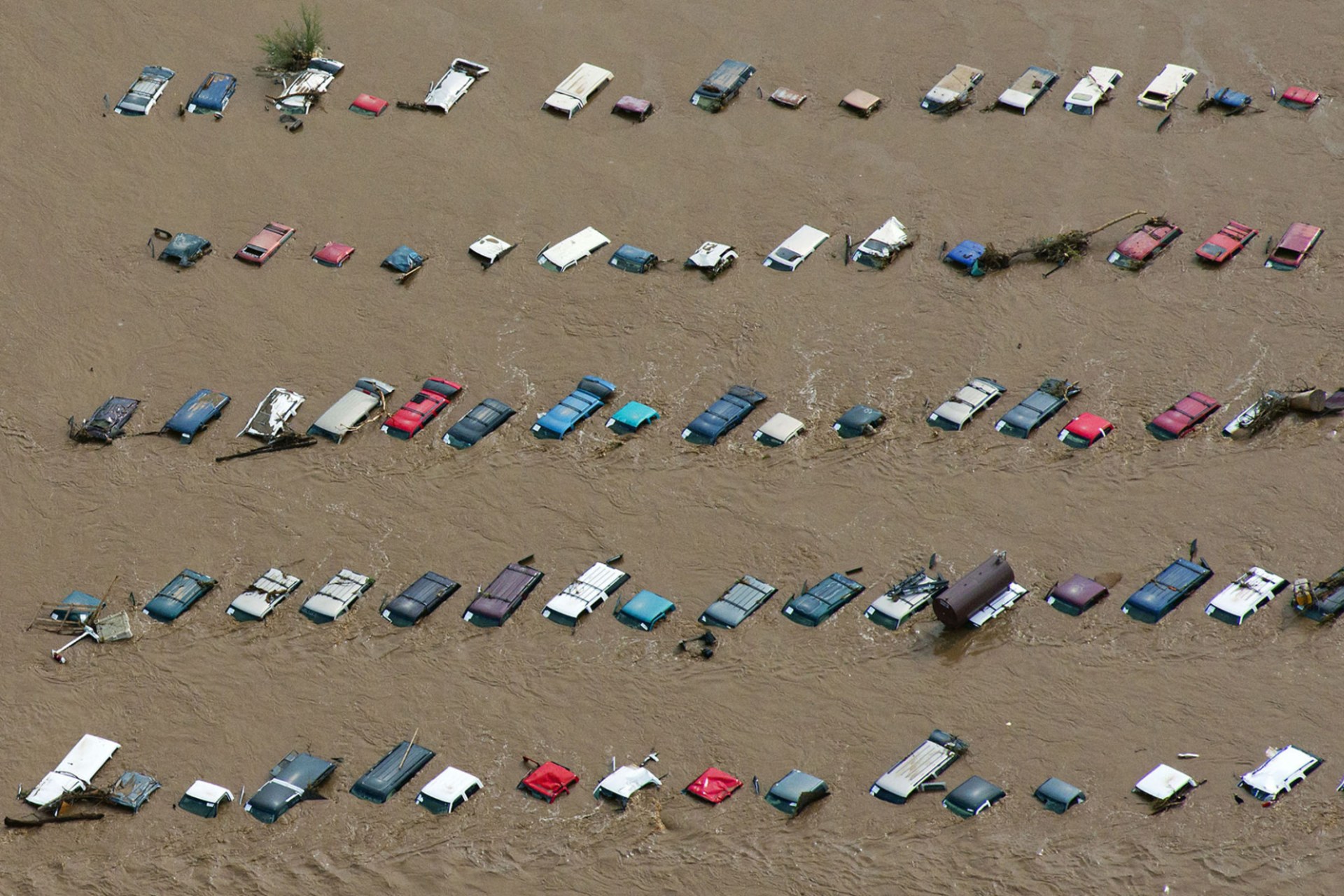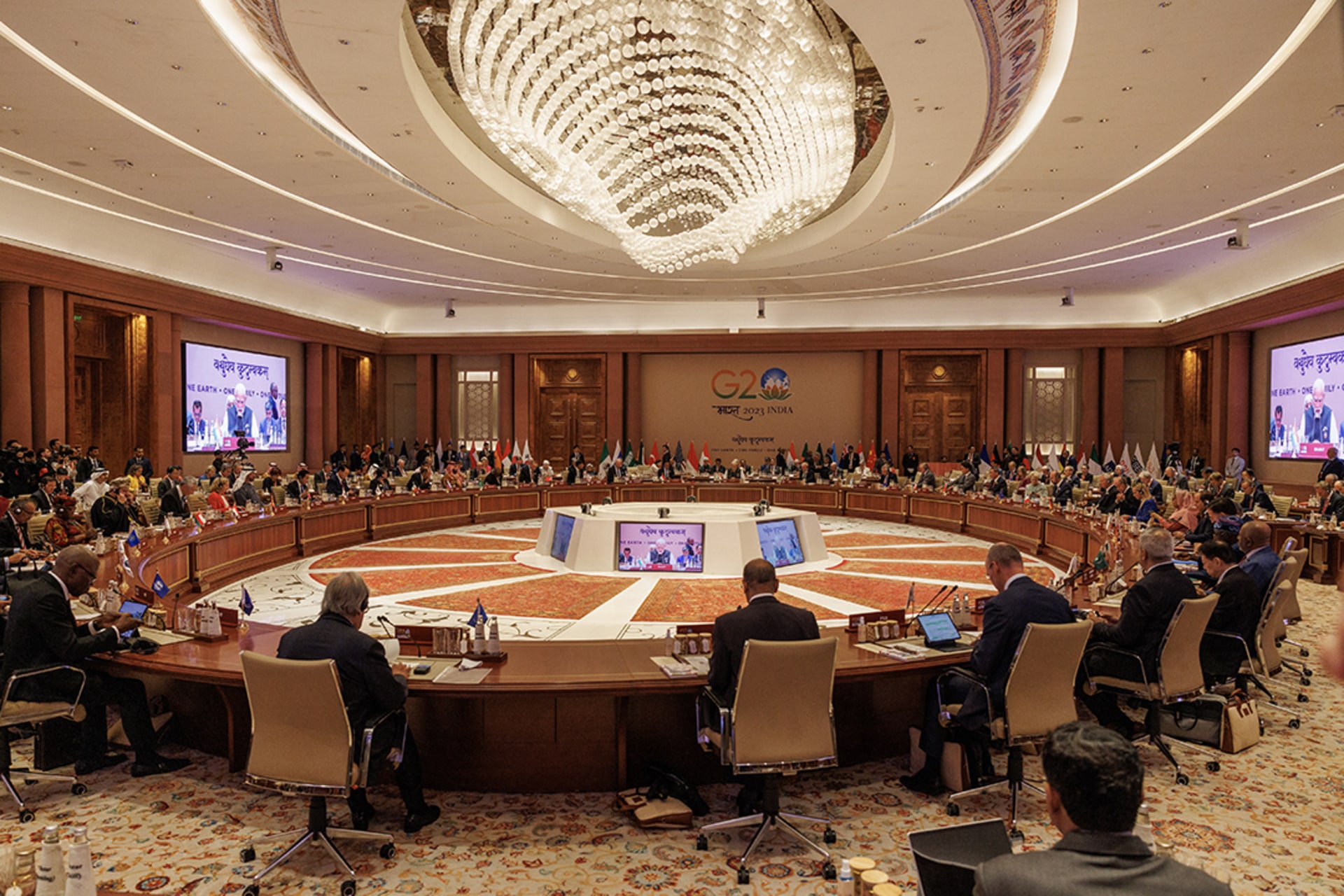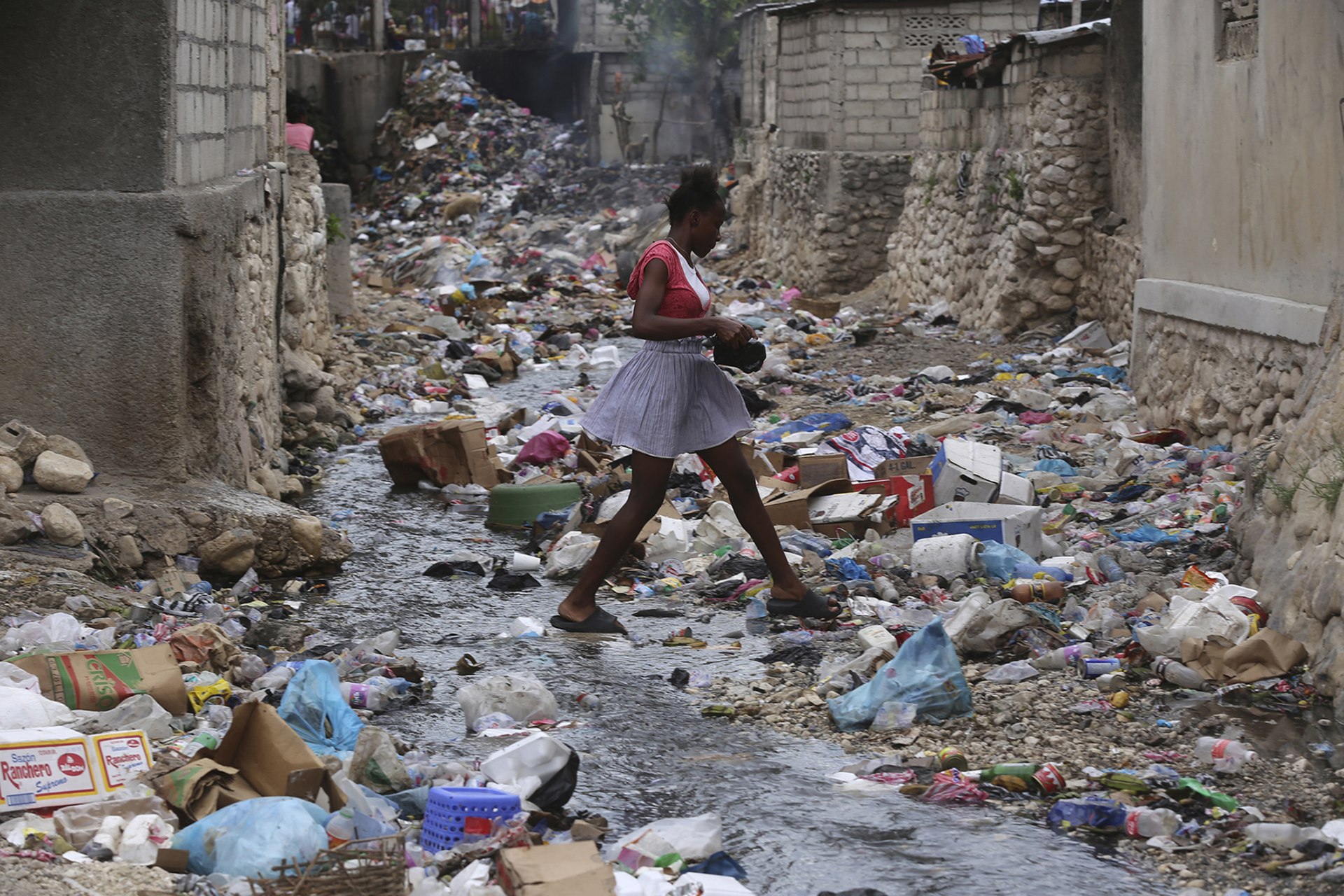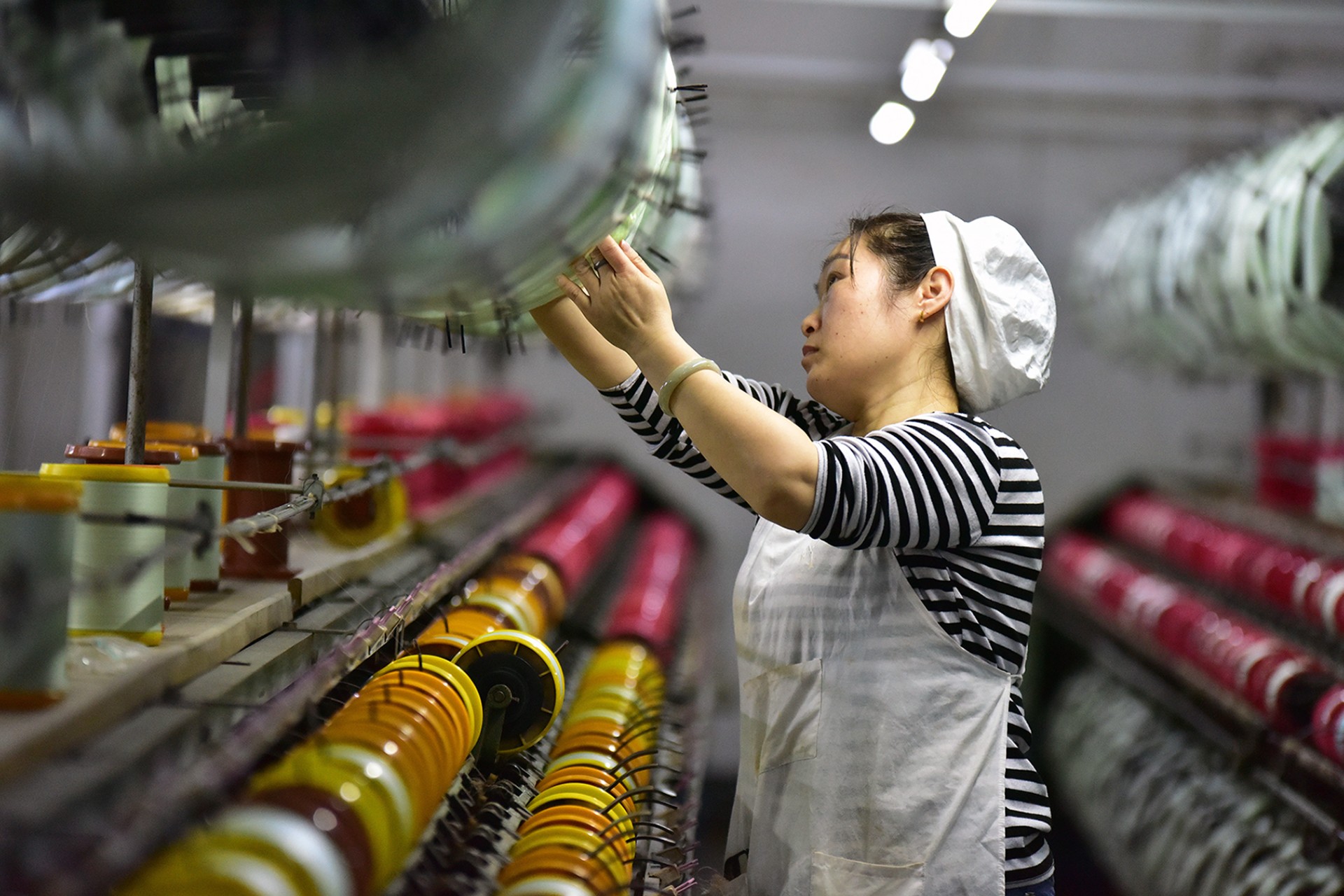Economic Challenges for Climate Change Policy
Published
Updated
President Barack Obama says he will seek vigorous climate-change policy. Efforts to curb greenhouse gases pose considerable economic pitfalls, as well as opportunities.
This publication is now archived.
Introduction
President Barack Obama and the Democratic majority in Congress say they are committed to enacting mandates to curb greenhouse gases. In May 2009, the Obama administration announced new standards for auto emissions and mileage aimed at reducing greenhouse gases up to 30 percent by 2016, a hopeful sign for environmental advocates. In June 2009, the House passed a climate bill for the first time, but just barely, and experts say a number of challenges (CQ) await similar action in the Senate. A failed attempt by Senate Democrats to push through a bill in 2008 underscores the uphill battle advocates face. Finding an approach that manages to cut greenhouse gases without doing serious harm to the U.S. economy, particularly given the global economic downturn, remains a top concern. Amid a slumping U.S. economy, and a major restructuring of the U.S. auto industry, any legislation that imposes higher energy costs will be particularly difficult to negotiate. However, many lawmakers say climate-change policy also holds economic opportunities, including creating jobs and employing new green technologies. Experts also say implementing climate policy in the United States will bolster international climate efforts set to culminate in Copenhagen in December 2009.
Taking the Plunge
Nearly all of the signatories of the Kyoto Protocol, a UN framework for reducing greenhouse gases, have begun taking steps to meet the emissions caps set for them. The United States was a Kyoto signatory but the treaty was never ratified by the U.S. Senate, in part due to fears that it would hurt U.S. competitiveness with countries like China and India that are not subject to emissions caps. Officials in those countries have likewise expressed reservations that the imposition of emissions caps would reduce their competitiveness and harm their economies. A successor to the Kyoto Protocol, which has expiring provisions in 2012, is expected to be finalized by December 2009 in a meeting in Copenhagen.
President Obama and the Democratic-led Congress are attempting to move toward implementing climate policy in the United States ahead of any new international commitments. Although crafting policy poses significant challenges, environmental advocates believe more significant harm to the economy would come through inaction. The 2006 Stern report, sponsored by the British government, forecasts global GDP losses of 5 percent to 20 percent unless significant action is taken to halt climate change. Environmental advocates say the longer the United States waits to begin making reductions, the steeper those reductions will need to be to make a difference.
The most obvious economic benefit to capping greenhouse-gas emissions is mitigating the impact of climate change, which will have far-reaching implications for the U.S. and global economies, if projections prove right.
Congressional concerns about how much such a cap would raise energy prices continue to be an obstacle to U.S. policy. However, an April 2009 report by the U.S. Environmental Protection Agency (EPA), which found that greenhouse gases pose a danger to people’s health, paved the way for possible climate regulations through the existing Clean Air Act in lieu of a new climate law should Congress fail. Michael Levi, CFR senior fellow for energy and climate, points out, however, that the clean air law is an imperfect mechanism for addressing climate change and says the benefits of passing a climate law sooner rather than later. “Using the Clean Air Act to regulate emissions would likely be far more expensive than using a cap-and-trade system; anything that makes the [Clean Air Act] path less likely, then, would be an economic plus.”
Cost by Design
A major problem for climate-change policy is how to set the price for emitting greenhouse gases. Most climate proposals from the U.S. Congress focus on designing a cap-and-trade program. Under such a program, like the one in the European Union, the price of emissions would be market-based. Companies are allocated allowances limiting them to a certain amount of greenhouse-gas emissions each year. To meet these caps, they must reduce emissions but can also purchase offset credits from climate-friendly projects in lieu of internal emissions reductions.
Under the EU trading system, permit prices for emitting an equivalent ton of carbon dioxide have fluctuated significantly. Instead of cap-and-trade, many economists generally favor a carbon tax, which they believe would provide price predictability with costs to the economy offset by lowering taxes in other areas. However, many experts think such a tax would be nearly impossible to get through Congress. Environmental experts also contend that while a tax would provide cost certainty, only a cap could provide certainty on minimum emissions reductions.
Peter R. Orszag, former head of the Congressional Budget Office (CBO) and now head of Obama’s Office of Management and Budget (OMB), told a congressional committee in November 2007 that decisions about how to allocate emissions permits (PDF) can have a significant economic impact. Permits can either be given away for free or sold, usually by auction. Both the House and Senate proposals would give away nearly two-thirds of permits in the first few years, with the amount auctioned slowly rising over time. The CBO estimates the Senate’s 2008 bill would increase federal revenues by about $1.2 trillion in the first decade (PDF) from permit sales. The remainder of the permits would be given away to industries based on a formula in the bill.
Lawmakers and industry leaders worry greenhouse-gas caps in the United States will reduce the ability of U.S. companies to compete with foreign imports, leading U.S. companies to move to countries without greenhouse-gas restrictions.
Orszag says giving allowances away would allow companies to pass on the cost of an emissions permit without actually having paid for it themselves, thus creating windfall profits. A March 2008 report from Point Carbon, a consulting group, finds that this was true of utilities in the European Union (PDF), where permits were given away. But the National Rural Electric Cooperative Association, an energy industry advocate, says the electric utilities should be allocated some free permits to “avoid rate shocks” (PDF). Robert C. Baugh, head of the AFL-CIO’s energy task force, notes that companies also could hoard permits (PDF), increasing price volatility. He suggests assigning time limits to permits to “create a more certain, less speculative environment.”
Offsetting Economic Harm
Industry officials and some experts are concerned about the possible negative economic impacts of setting a price on carbon. “You want to be careful not to design a cap-and-trade target so ambitious that it gives a shock to the economy,” says Derik Broekhoff, a senior associate for the environmental think tank the World Resources Institute. William A. Pizer, senior fellow at Resources for the Future, a Washington-based environmental think tank, argued in a CFR.org Online Debate in June 2007 that a “safety valve,” allowing for the distribution of additional permits when permits reach a certain price, could provide the same stability as a tax. But Kenneth P. Green, resident scholar at the American Enterprise Institute, notes in the same debate that while the safety valve could work in theory “emission trading systems have been plagued by corruption and subversion that make such a perfect scheme highly unlikely.” The U.S. House proposal (PDF) would create a “strategic reserve” of emissions allowances that could be purchased in case prices for allowances rise faster than anticipated.
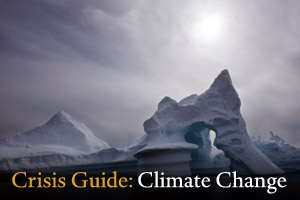
Lawmakers and industry leaders worry that such greenhouse-gas caps in the United States will reduce the ability of U.S. companies to compete with foreign imports, leading U.S. companies to move to countries without greenhouse-gas restrictions, which is often termed “leakage.” To address such concerns, the bill contains a proposal to tax imports from countries not making similar greenhouse-gas reductions of their own. The Senate’s 2008 bill would require importers of greenhouse-gas-intensive goods to begin purchasing permits about a decade after enactment. The House proposal also would require importers of greenhouse gas-intensive goods to pay for permits after 2017 if other measures in the bill fail to prevent leakage.
Some environmental advocates even contend green tariffs could bring exported industries back to the United States. The April 2009 report from the Pew Center on Global Climate Change examines a number of policy options (PDF) for protecting competitiveness within climate change policy, including installing contingencies tied to the actions of other countries. The EU, for example, has a 20 percent target for reducing emissions below 1990 levels by 2020 if other countries such as the United States make no climate commitments, but the target would increase to 30 percent if other countries take strong climate actions.
But creating such a tariff system would pose a number of hurdles. One is deciding how to measure how much greenhouse gas was emitted to produce a certain product. Gary Clyde Hufbauer, a Peterson Institute economist, says the likely outcome is a messy set of hybrid systems that differ from country to country. “Each country will favor a mixture of subsidies, border adjustments, and other [greenhouse gas] controls that foster its own producers, especially ’national champions,’” he says. For members of the World Trade Organization (WTO), such tariffs are likely to face serious challenge in the WTO’s dispute settlement system. An evaluation by the Pew Center on Global Climate Change finds “unilateral border adjustment measures” (PDF) would not adequately address U.S. competitiveness or stimulate developing country action on emissions reductions.
The New Green Economy
The most obvious economic benefit to capping greenhouse-gas emissions is mitigating the impact of climate change, which will have far-reaching implications for the U.S. and global economies, if projections prove right. A cap-and-trade system also offers potential economic benefits. Caps would provide incentives for energy saving and low-emissions technologies. Revenues from purchasing credits that offset emissions could be used to spur investment in green technologies that help the economy transition. Offset projects themselves count as new business opportunities. A report on the benefits and challenges of offsets by the Congressional Research Service points out that offsets could help lower compliance costs (PDF) for regulated entities. At a May 2009 CFR meeting, William Antholis, managing director of the Brookings Institution, also pointed out that some economic analyses of policy actions to mitigate greenhouse gases fail to account for add-on benefits such as the health consequences of reduced coal use or the geopolitical consequences of moving away from oil consumption.
The development of green technologies will also create new jobs. In 2006, more than two million people globally were working in sectors related to renewable energy, according to a UN report. It projects that number could go as high as twenty million (PDF) by 2030. Broekhoff, of the World Resources Institute, says U.S. climate policy will provide extra incentive for U.S. firms to maintain a competitive advantage in green technologies. But Jeffrey R. Holmstead, a former senior EPA official and now an industry lawyer, says people who tout a net gain in jobs under climate-change policy are “economically illiterate.” He argues more jobs will be lost from climate-change policies than would be gained.t
Colophon
Staff Writers
- Toni Johnson
